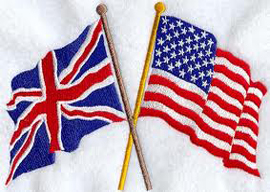
July 28, 2011

I have argued elsewhere that at the age of twenty the normal human being’s development is pretty much finished. He is “cooked all through,” as it were. Not that we can’t learn, adapt, and change after that age, but our deep outlook, our worldview’s bedrock contours, are set. The rest is just sprinkling soil on that bedrock, perhaps growing a few turnips.
This came to mind last week when reading two newspaper pieces from the old country. One was actual news; the other was commentary.
The commentary piece was by veteran Tory journalist, authorized biographer of Margaret Thatcher, and former (very briefly) editor of mine Charles Moore. It had the striking title: “I’m starting to think that the Left might actually be right.” Moore says that global capitalism, at its present point of development, bears a disturbing resemblance to the old leftist caricature of it:
It turns out—as the Left always claims—that a system purporting to advance the many has been perverted in order to enrich the few. The global banking system is an adventure playground for the participants, complete with spongy, health-and-safety approved flooring so that they bounce when they fall off. The role of the rest of us is simply to pay.
The other piece, which was actual news, concerned Maurice Glasman, who was elevated to the British peerage as Baron Glasman this February by Ed Miliband, leader of the opposition Labour Party. (New peers are created by the monarch on the Prime Minister’s advice; but the convention is that the PM includes in each batch a few worthies recommended by the Leader of the Opposition.)
Glasman is fifty years old and, like Miliband, Jewish. (He describes sitting in the House of Lords as: “It’s like being in shul. People talk while others are speaking and when they get up to make a speech it’s like having an aliyah.”) He grew up over his parents’ small shop in a seedy area of North London. He has spent his adult life as an academic (Econ., Poli. Sci.) and—oh no!—community organizer. A few weeks after his ascent to the peerage he was at a meeting hall in Bloomsbury—yes, that Bloomsbury—in central London to launch a movement he’d thought up: Blue Labour.
I need to do some translating here. First, the Jewish business. These are British Jews I’m talking about. British Jews differ in some important ways from their American co-religionists. Most notably, they are less hostile to Christianity—as they can afford to be, there being very little ardent Christianity in Britain. They are consequently less prickly—less hostile to white gentiles in general. Furthermore they—most commonly, their great-grandparents—came into Britain when it was monoracial and monocultural. There was no ethnic or racial Other to excite them into sympathetic alienation by reminding them of their own ancient subjections, as blacks did in the USA. The upshot is that British Jews are better assimilated, better liked, less defensive, and more at ease in their nation than are American Jews. (For insights into Anglo-Jewish life I recommend the quietly funny novels and essays of Chaim Bermant.)
Then there’s that “blue.” Our big political movements’ heraldic colors have become hopelessly confused. In Britain, red means left and blue means right. The Labour Party’s annual conferences have traditionally concluded with a rousing chorus of “The Red Flag.” Tory Party leader Margaret Thatcher, when on the campaign trail, never wore anything but blue. In the USA, for reasons I do not know, every election since 2000 has been reported the other way around: Democrats blue, Republicans red.
Since the Tory Party is officially the Conservative Party, blue can be taken to be the color of Conservatism; and thence, by the merest sleight of rhetoric, of conservatism. Maurice Glasman’s Blue Labour is a conservative Labourism. In his own precise words, it is “a deeply conservative socialism that places family, faith and work at the heart of a new politics of reciprocity, mutuality and solidarity.” Blue Labour harks back to mid-20th-century English socialism; to the Left Book Club, volunteers for Spain, Independent Labour Party summer schools, and above all to George Orwell. (Maurice Glasman, like Orwell, rolls his own cigarettes. No working-class Briton has done this since about 1955: It is entirely an affectation of middle-class leftists.) The nearest American equivalent would be communitarianism.